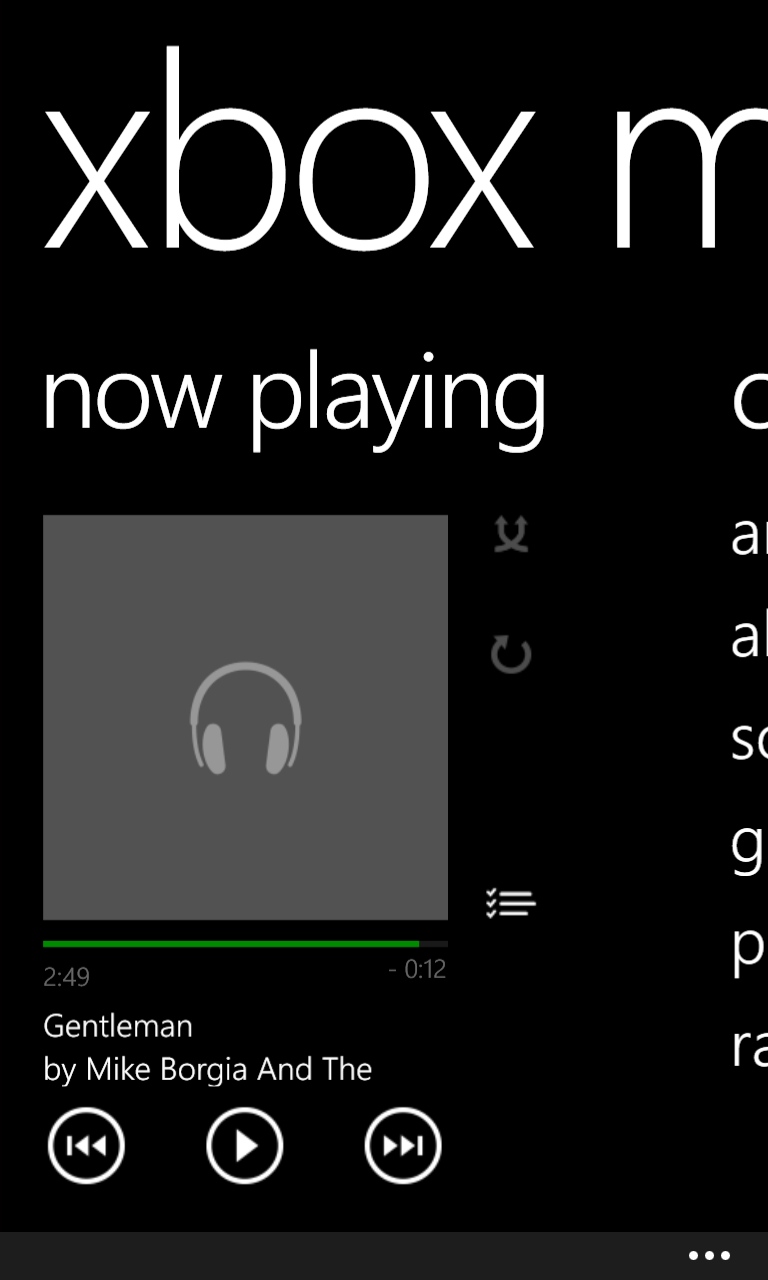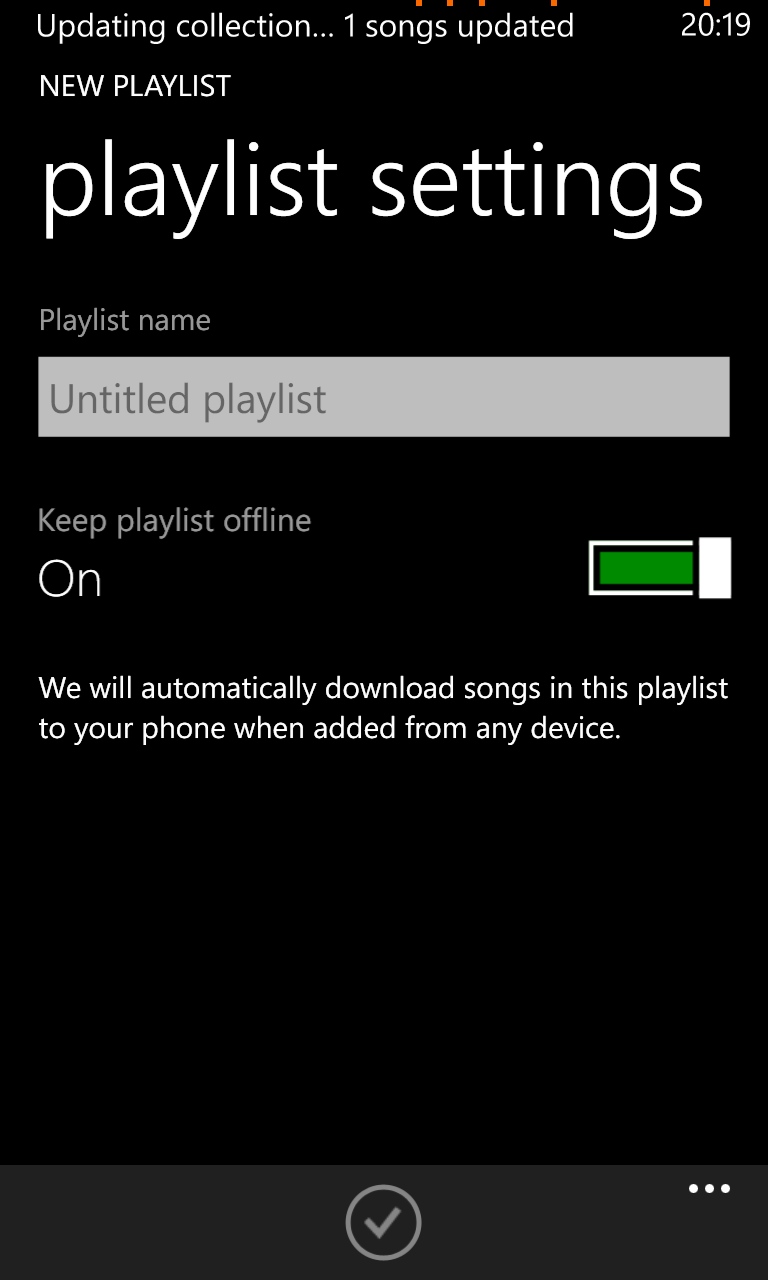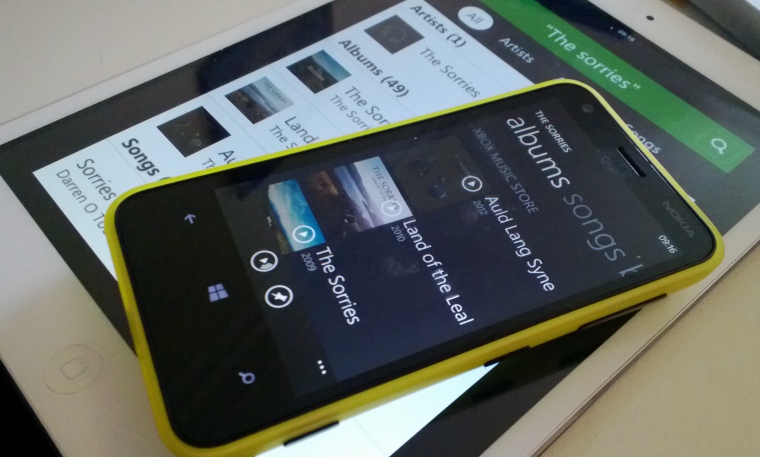Using music to sell a platform is not a new idea - reaching back to the days of the Zune music player, the Zune Music Pass was one of the first monthly subscription services that worked in practice for me. It ran on my Zune HD and PC, and when Windows Phone 7 came along, the music pass worked on that handset as well.
Now rebranded as the Xbox Music Pass and as part of the Xbox Music service, Microsoft continues to offer as much as you can listen to for a fixed monthly price, over a range of devices. Your deskbound PC and your Windows Phone are still present, but you can add the Xbox consoles, iOS, and Android devices (before all seven of you ask, yes, it still runs on the Zune as well). Free streaming options are also available.
In recent months, Microsoft has opened up the music service to allow for more sharing of data between the clients - including playlists syncing via the cloud and easy re-downloading of tracks to another Xbox Music enabled device, once a single device has started a download.


While the Xbox Music app for Windows Phone is still in its preview state , these facilities are already present. And while some of them have been present in other mobile platforms, I would expect Microsoft to use Xbox Music (and the similar Xbox Video service) as one of the selling points of the platform to users - such as the offer of a free 12 month subscription Xbox Music Pass with the purchase of a Lumia 520 (an offer that ran earlier this year). And while Microsoft would still prefer you to buy a Windows device to use a Windows service, you now have a choice.
The years of Microsoft lock-in are coming to an end. Just as the cloud services of Microsoft are no longer locking you in to Redmond's platform, neither are these new media services.
There are many lessons to be learned from Microsoft's music experiences in the past, and the changes are being reflected in the new product. The regionality of music was always an issue, although this was more down to labels and releases than a decision by Microsoft to limit music to certain territories. That said, the support for podcasting in the Zune/Xbox system outside of the United States is non-existent, and I would hope that the 'national blinkers' that aided that decision realise that podcasting is far more universal than a record label.
There is also a momentum issue. Unlike the early days of the Zune Pass, there are many established music services that offer the same download and listen for a monthly payment - Spotify being the service that springs to everyone's mind first of all. Microsoft has an uphill battle to promote the service, but as the Microsoft ecosystem starts to push through the noise and come to the foreground in the public mind, the benefits of cross-promotion and visibility should help boost the music and video side of the equation in Microsoft's favour.
Apple has a formidable presence with the iTunes store covering music, TV, and film. It's also joined up across the platforms, although the subscription options are not yet in full effect. Google has a similar play with Google Music, which does offer the subscription model and has a presence on iOS devices as well.

Microsoft isn't first to this party, in fact (rather like Windows Phone itself) it's rather late. But it has some advantages to leverage, including negotiating power with the addressable number of devices, advertising power with the number of screens under its control, and access, via the living room and the Xbox platform.
Music and video are going to be key parts of the Windows story during 2014, which includes Windows Phone, and that's a good thing. Continued access to the latest tracks and albums, the opportunity for TV shows and movies to be downloaded and watched on the handset, and to have a universal collection living in the cloud but also with a local presence, all of these will keep the media player in Windows Phone as one of the better media environments on a mobile device. Except it now has the benefit of every other Microsoft device behind it and a unified media team supporting it.
